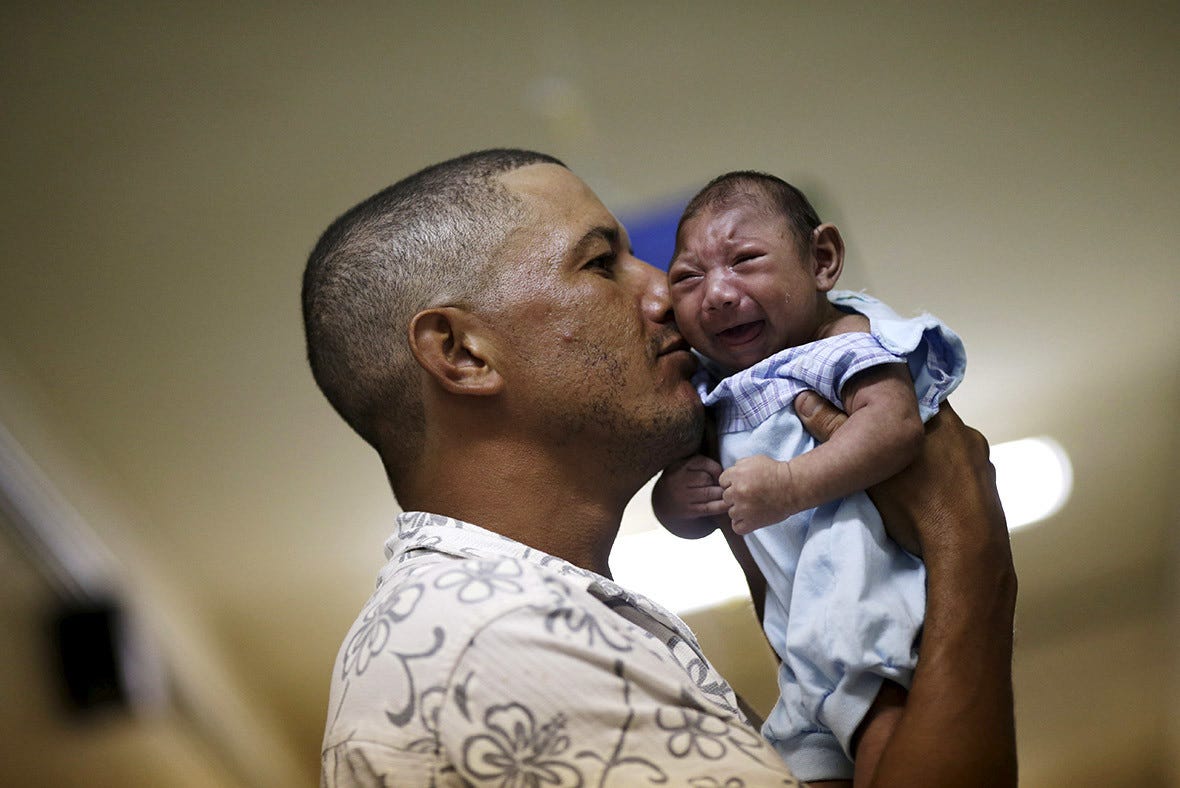Brazil: Opportunity in Crisis
Brazil is suffering from a toxic cocktail of economic, political, and public health crises. Once hailed as a beacon of emerging market growth, the country now wallows in pessimism.
Brazil’s growth rate fell from 7.5 percent in 2010 to -3.8 percent in 2015; a worse contraction is expected this year. Inflation is at a 12 year high, unemployment is approaching 10%, and the country’s currency fell by a third in 2015. A bloated public sector, large entitlements, and over-regulation continue to hamper the economy. Leaders have failed to implement meaningful reforms amidst these headwinds, instead opting for populist policies. And commodity prices, which once supported the resource-rich economy, have been clobbered by the bursting of China’s credit-fueled investment bubble.
Meanwhile, a political crisis has rocked the country. The lower house of Brazil’s National Congress recently voted to impeach President Dilma Rousseff. She has been accused, as noted in the New York Times, of employing "budgetary ticks to conceal a looming deficit." Investigators claim she borrowed billions from state-owned banks during the 2014 elections to fund popularity-enhancing social programs.
The president’s defenders have asked whether her actions are actually impeachment-worthy, with several supporters calling recent events an attempted coup. Others suggest the proceedings are more of a cover-up than a coup, noting political theatrics are distracting popular attention from lingering investigations of prominent business and political leaders. Tensions are running high as former allies and supporters have taken to the streets.
As if political and economic chaos was not enough, Brazil was also struck by a Zika virus epidemic last year that continues to affect the population. Given the link between the virus and brain development disorders in fetuses, the public health community is rightfully alarmed. The number of likely cases in Brazil is approaching 100,000, with more than a third coming from the southeast, which contains Rio de Janeiro.
Rio is also hosting the Olympics this summer, and the public health community has been warning pregnant women not to travel to the country. Further, recent evidence suggests Zika can also be sexually transmitted, meaning future fathers may also stay away.
The impact of the epidemic on attendance at the games is still unclear. Ticket sales have been slower than expected, but officials are optimistic they will pick up. Meanwhile, a range of other operational challenges seem likely to hamper the games, including construction delays on a key subway line linking stadiums to the rest of Rio.
Despite the political, economic, and public health crises hanging over the country, there are still reasons for cautious long-term optimism.
As the eighth-largest economy in the world, Brazil remains a huge market that global corporations want to access. The IMF recently pointed out that foreign direct investment in the country has grown despite the widespread economic and political challenges. Moreover, with inflation expectations and labor costs starting to fall, there are preliminary signs that the economy may be bottoming out. And the weak Brazilian real should help exporters.
There are still reasons for cautious long-term optimism.
Further, while it’s too early to tell, there’s the possibility of another commodity boom around the corner. Under its One Belt, One Road initiative, China has already announced a massive program to rebuild the Silk Road. The construction of railroads, ports, power plants, and other infrastructure across Eurasia will drive demand for commodities like iron ore that helped Brazil to boom in recent years.
As the global middle class balloons in the coming years, demand for food will skyrocket, and Brazil is well positioned to benefit enormously from this trend. Why’s that? Brazil is an agricultural powerhouse. Despite the recession, the country’s agricultural sector grew last year, and the government expects record or near-record crops of soybeans, corn, coffee, and sugar this year. Record beef, chicken, and pork exports are also highly likely. As noted by the Wall Street Journal, soy was Brazil’s most valuable export last year, exceeding iron ore, the previous title-holder. The country supplies half of the world’s sugar exports and 40% of arabica coffee exports.
The risk of another commodity boom is that it provides Brazilian leaders wiggle room to postpone or permanently shelve much-needed reforms. The World Bank’s “Doing Business” report lists Brazil at number 116 of 189. Regulations can and should be streamlined to make the country more business-friendly. According to the rankings, it’s currently easier to do business in Ghana, Swaziland, Uzbekistan, or Mongolia. The 2016 Index of Economic Freedom lists Brazil as “mostly unfree” at a rank of 122 out of 178 countries.
While these comparative metrics may depress Brazil bulls, they also highlight a huge opportunity. Specifically, leaders should strengthen the rule of law and support market-oriented reforms. The state’s involvement in industries ranging from oil and gas to electricity remains high and should be lowered.
Leaders should strengthen the rule of law and support market-oriented reforms.
Brazilian leaders and citizens should recall the wisdom of Winston Churchill who said “never let a good crisis go to waste.”
Vikram Mansharamani is a Lecturer at Yale University in the Program on Ethics, Politics, & Economics. He is the author of BOOMBUSTOLOGY: Spotting Financial Bubbles Before They Burst (Wiley, 2011). Visit his website for more information or to subscribe to his mailing list. He can also be followed on Twitter or by liking his Page on Facebook.






